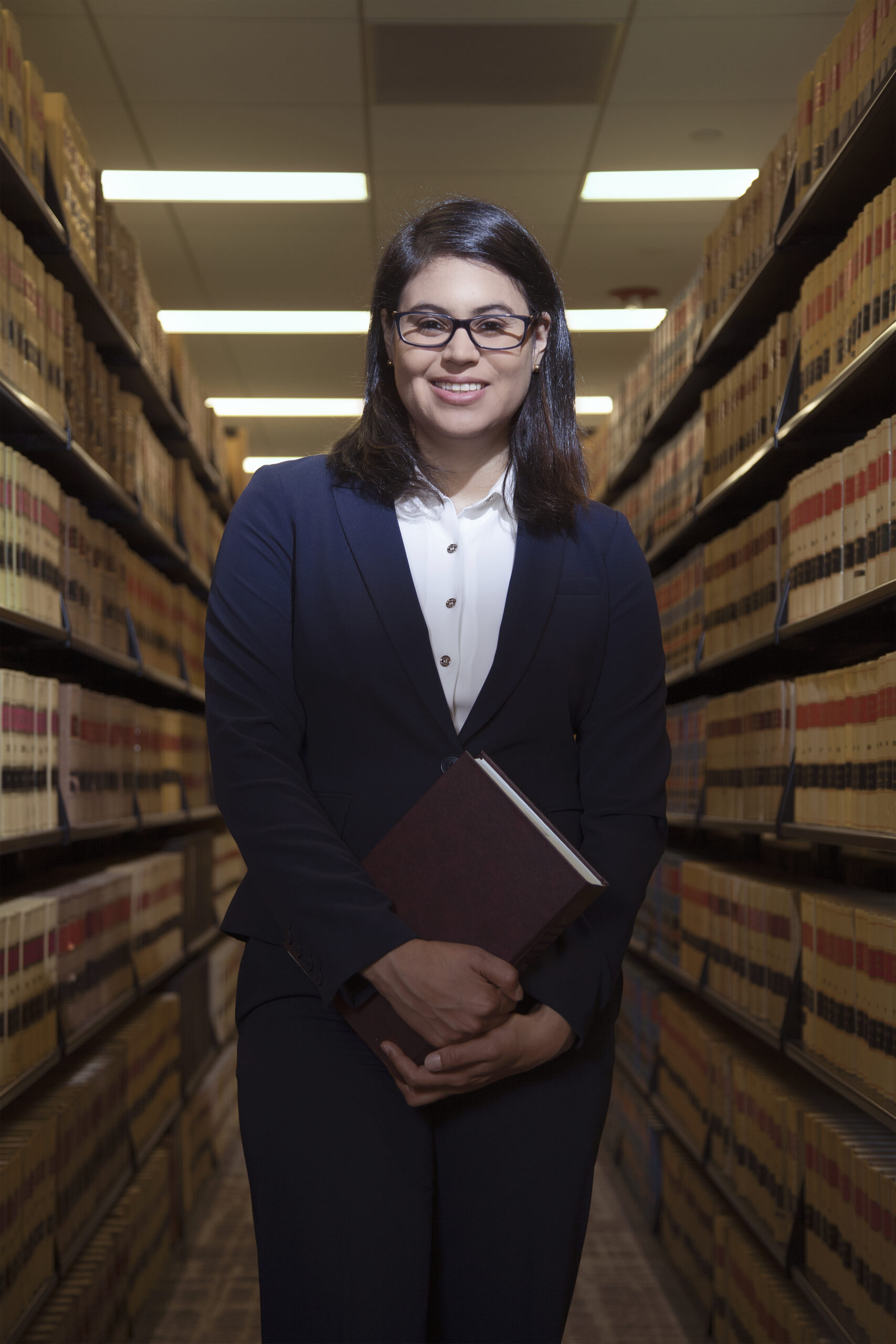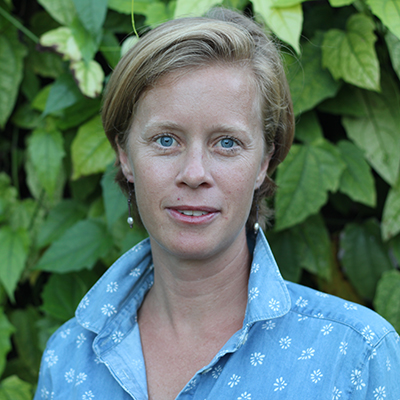A Passion for Public Service
Public Interest Scholarship recipient Miosotti Tenecora (’19), an immigration attorney and advocate, came to BU Law with an extensive background in public service.

Photos by Dana Smith for Boston University Photography
A Passion for Public Service
Public Interest Scholarship recipient Miosotti Tenecora (’19), an immigration attorney and advocate, came to BU Law with an extensive background in public service.
When Miosotti Tenecora (’19) was a junior accounting major in college, she turned down an internship with a Big Four accounting firm because it didn’t feel right. Instead, she “scrambled” to apply for—and obtain—a position at the Brooklyn District Attorney’s Office, her first public service role apart from volunteer experience.
She never looked back. By the time Tenecora arrived at Boston University School of Law, she had interned, worked, or volunteered at the US District Court for the Eastern District of New York, two different organizations that assist survivors of domestic violence, the Permanent Mission for the Principality of Andorra to the United Nations, and a New York City Council member.
“My career trajectory is different than most,” she laughed in a recent interview.
For her early—and consistent—commitment to public service, BU Law awarded Tenecora a Public Interest Scholarship, which covers tuition in full for students who have demonstrated a desire to pursue a career in public interest law. And her trajectory hasn’t changed. While on campus, she pursued a wide range of public service internships and clinics. After graduating, she took a two-year fellowship in the immigration program of Community Legal Services in East Palo Alto, where she was hired in April as a full-time staff attorney focused on representing clients and advocating for immigration reform.
“Our mission is to provide transformative legal services,” she says. “I represent immigrants, and I tie in advocacy work in the hopes that we can get better laws that suit our clients.”
A first-generation college student raised in the Bronx, New York, by a single mother from the Dominican Republic, Tenecora says she originally studied accounting because she wanted to be sure she could earn a living to help support her family.
“All I wanted was a lucrative career to give back to my family and my community,” she says. “I wasn’t really thinking about my specific interests or what I like.”
During her senior year of college at Fordham University, Tenecora began thinking about law school. A professor recommended she take time off to make sure a law degree was what she wanted.
“I took it to heart,” she says.
“As an immigration attorney, I want the moon. The US immigration system is inherently negative, based on a very harmful narrative of the good immigrant versus the bad immigrant. We have a lot of work to do.”
For two years, she worked in the clerk’s office in the US District Court for the Eastern District of New York, managing procedural inquiries from attorneys and judges and scheduling the criminal justice panel. Then, because she wanted to travel, she enrolled in Concordia University Irvine’s international relations master’s program. She spent 18 months living in Shanghai, writing her thesis on Chinese college students’ perceptions of domestic violence.
By the time she was ready to apply, BU Law fit her two basic criteria:
“I wanted to get away from New York, and I also wanted to get a scholarship,” she explains. “I knew I couldn’t afford law school in any way.”
On campus, Tenecora enjoyed her courses—especially a constitutional law class with Professor Emerita Pnina Lahav—but initially felt out of place.
“In my first year, I really struggled, and it wasn’t academically,” she says. “It was more like I felt alone.”
In the spring semester of her first year, Tenecora created a First-Generation Professionals Group, which had more than 60 members by the end of that school year. She also says she appreciated her time with then-Professor Khiara M. Bridges (now at UC Berkeley School of Law).
“She not only knew her substantive material; she was also a role model as a woman of color,” she says. “As you climb the ladder, you see less and less people of color. She was just amazing.”
Tenecora enrolled in the International Human Rights Clinic, for which she spent two weeks in Guatemala conducting research for a report on migrant disappearances, and spent a semester working with asylum seekers in the Dominican Republic for the United Nations High Commissioner for Refugees as part of BU Law’s Semester-in-Practice Program.
She also interned at the Office of the Bronx District Attorney and researched universal basic income programs for a Massachusetts state senator as a student in the Legislative Drafting & Policy Clinic.
She says immigration law appeals to her because of the multi-faceted nature of the work.
“You can’t just say ‘immigration,’” she says. “It’s racism, it’s poverty, it’s criminal law. I knew if I went into immigration law, I was going to hit those issues I’m passionate about.”

At Community Legal Services in East Palo Alto, in addition to representing low-income juvenile and adult clients in immigration matters, Tenecora has worked to stop transfers from the San Mateo County Sheriff’s Office to US Immigration and Customs Enforcement. She’s also met with representatives of US Senators Alex Padilla and Dianne Feinstein and US Representatives Jackie Speier and Zoe Lofgren to discuss how to address a backlog in the system for special immigrant juvenile status visas and legislation for the so-called Dreamers, who have been allowed to stay in the country under the Deferred Action for Childhood Arrivals (DACA) program.
She says BU Law’s Public Interest Scholarship gave her “more financial freedom” in her career choices and that she benefitted from the sense of community the program created through breakfasts, dinners, and other events.
“BU Law made an effort to guide the Public Interest Scholars in whatever career they wanted,” she remembers. “There were really good programs.”
In the future, Tenecora says she hopes to do more work in policy.
“As an immigration attorney, I want the moon,” she says in reference to immigration reform. “The US immigration system is inherently negative, based on a very harmful narrative of the good immigrant versus the bad immigrant. We have a lot of work to do.”
